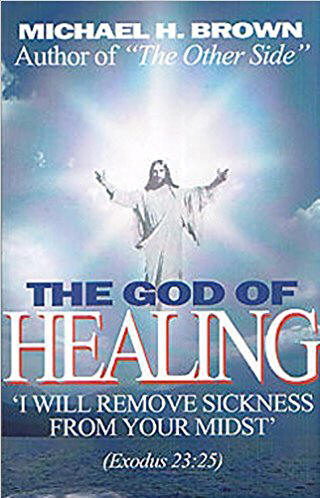Visiting some doctors can be similar to interacting with artificial intelligence.
In many cases the visit is quick, clipped, emotionless, and without much in the way of probing follow-up questions.
Medications almost always are prescribed, especially antibiotics. Anything out of the ordinary — that strays in the least from the formulaic medical school texts — is shunted to the byways. This is especially true when it comes to food and natural means of healing, which are not taught in medical schools.
And so continues the medical crisis in the United States (and other Western nations).
Never ignoring the advice of competent doctors, we nonetheless should augment our healing with what God placed in nature for our benefit. Most people don’t realize that hundreds of modern medications are designed to mimic plants that for millennia were known to solve certain medical dispositions.
So it is that when it comes to insights into the natural way to health, a logical way can be simply to take a look at some of the longest-lived communities on the planet.
There is Nicoya, Costa Rica. The diets there are dominated by black beans, squash, and corn tortillas, along with tropical fruit year-round. In Nicoya, the soil is neither depleted nor over-chemicalized — unlike the U.S., where irrigation-herbicide systems douse acreage with countless gallons of multi-colored “water” (never mind how animals are fed and treated).
There is Ikaria, Greece: The average person in Ikaria lives eight years longer than the average American, with virtually no dementia. Denizens there subsist on the purest form of the Mediterranean diet (vegetables and fruits, beans, fish, whole grains, and olive oil). Also, they consume herbal teas with sage, oregano, and rosemary. One study found that found eating half a cup of cooked greens a day is associated with nearly four extra years of life expectancy.
Beets. Turmeric. Sweet potatoes.
Really, in pure form, just about anything God made has its benefits. (But some more than others.)
In such areas (known as “blue zones”), “people have a vocabulary for purpose,” said the report. “They wake up in the morning and they know how they’re going to spend their day.
“The scourge of electronics networks hasn’t destroyed them yet—as it’s destroyed us. Instead of imploding into their devices as we increasingly do in America, there’s an expectation in the Blue Zone areas that people are connected socially. If you don’t show up to church, or if you don’t show up to the village festival, or people don’t see you for a couple of days, you’re going to get a knock on your door. But they also live in communities where you’re always bumping into people organically. You walk out your front door, and you run into people you know every day. Loneliness has been associated with shaving several years off life expectancy.”
Go to church if you can.
Furthermore: “what’s clear is that 95 to 100 percent of their dietary intake came from low- or non-processed, plant-based food. The pillars of longevity diets everywhere are greens, whole grains, beans, and nuts. Unless you have an allergy or another complicating condition, most of us should be eating those four things every day. And if you are eating them, you’re probably adding five years to your life expectancy.”
Sardinia, Italy? There we have the world’s longest-lived males, most concentrated among shepherds who eat a variation of the Mediterranean diet that’s very high in beans, sourdough bread, and a special kind of wine called cannonau, which contains more anti-oxidants than most wines.
Longest-lived women? Look to:
Okinawa, Japan. Largely plant-based, and high in tofu, their diets consist notably of bitter melon and turmeric. “What stands out in Okinawa are the notions of ikigai (to be imbued with a sense of purpose) and moai (a strong social network),” said the website.
These people usually also are very active physically in some way every day.
Fish. Dark greens. Walnuts. “Let food be thy medicine,” said Hippocrates.
Recently there was an article about a 105-year-old woman who received the vaccine. Her “secret” to longevity included daily Rosary and nine raisins that had been soaked in gin for nine days (allowing the alcohol to evaporate and the gin’s juniper berries to interact with the sulfur in golden raisins, causing an apparently anti-inflammatory effect).
You won’t get that as a prescription.
Dis-ease is disharmony.
“So neither ought you to attempt to cure the body without the soul; and this is the reason why the cure of many diseases is unknown to the physicians, because they are ignorant of the whole, which ought to be studied also; for the part can never be well unless the whole is well,” said Plato. “For this is the great error of our day in the treatment of the human body, that physicians separate the soul from the body.”
Never forget to seek a good night’s sleep. And don’t forget that living longer does not mean living better (health-wise). Too often Westerners limp to their latter years on so much medication they need pill dispensers to keep track of it. Blood pressure. Cholesterol. Sugar levels.
“It is more important to know what kind of a patient has the disease than what kind of a disease the patient has,” said another past notable.
“America does not have a health care system; what modern medicine has created is an illness maintenance system.,” groused a well-known physician named Morris Hyman.
To repeat, this is not to ignore the great medical accomplishments. Propelled in part by advances in childbirth and infant care — reduction of young mortality — and increased living standards, plus fewer wars, all fused with often amazing medical advances, the average person in America lives nearly forty years longer than in 1860 (78.9 years in 2020).
The biggest problem: “In the nineteenth century men lost their fear of God and acquired a fear of microbes” (author unknown, circa 1930s).
[resources: The God of Healing]





